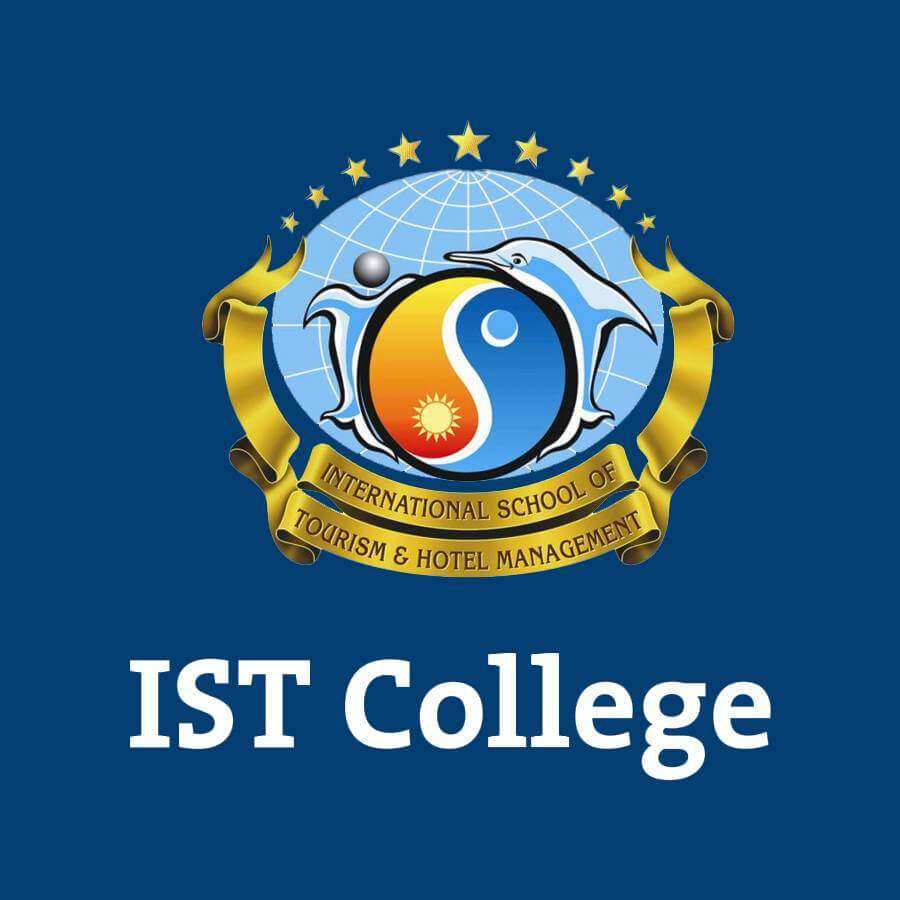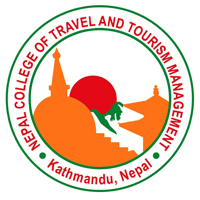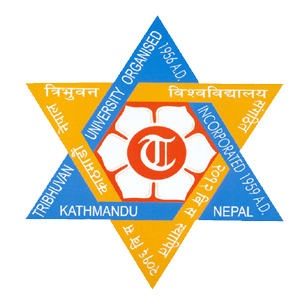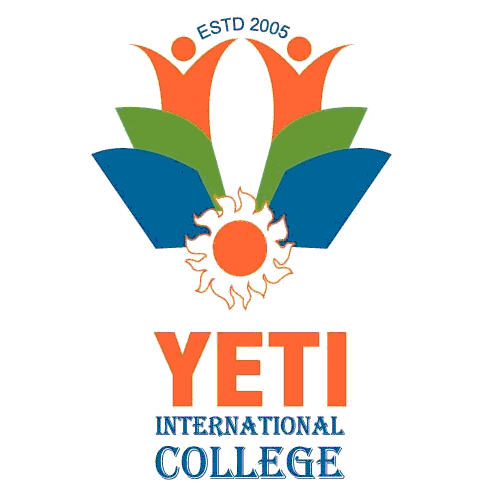Overview
BTTM at Nepal Academy of Tourism and Hotel Management (NATHM), Kathmandu
Bachelor in Travel and Tourism Management (BTTM) at NATHM, Kathmandu is a four-year, eight-semester Tribhuvan University–affiliated degree that prepares you for professional roles across travel operations, tour design, guiding, airline service, and destination management in Nepal and abroad.
This guide covers BTTM at NATHM, course structure, 126-credit requirements, CMAT-based admission, internship rules, attendance, and exam weights, using information drawn from the official BTTM curriculum and course page.
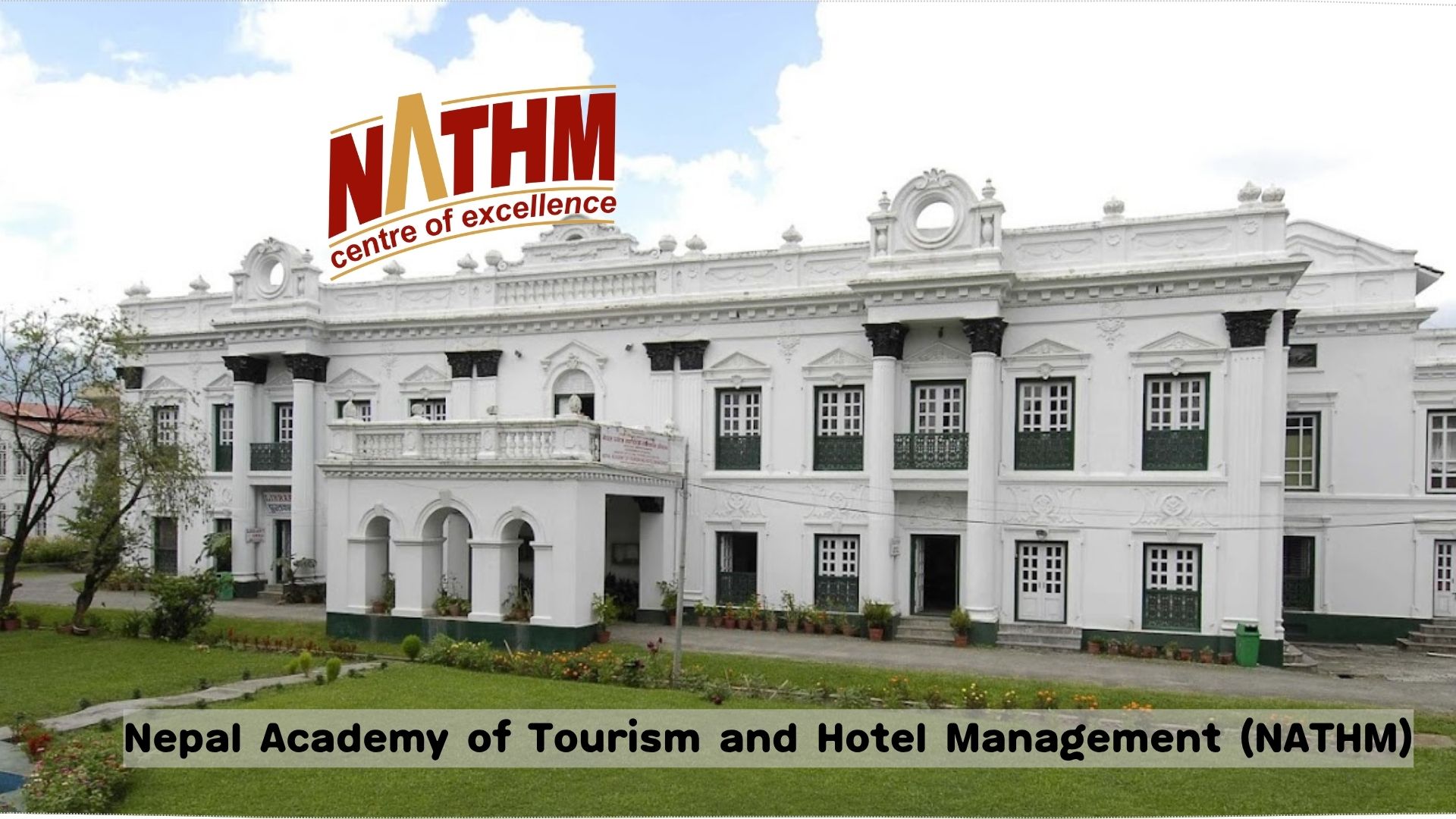
Introduction
NATHM’s BTTM develops practical knowledge of travel services, ticketing, tour operations, destination planning, tourism economics, and cultural interpretation. You study airline fare construction, computer reservation systems, tour guiding, eco-tourism, MICE activities, and legislation relevant to Nepal’s tourism sector. The final semester places you in an industrial attachment with a structured internship report and viva.
The degree totals 126 credits across compulsory courses, core TTM courses, one elective, and an industry placement spread over the final semester. Learning progresses from foundations in management, accounting, research, and statistics to travel-specific subjects such as GDS/e-ticketing, tour design, and destination development.
Highlights
-
Duration and structure: four academic years, eight semesters, 126 credits.
-
Credit map: 39 compulsory + 72 core + 12 industrial attachment/placement + 3 elective.
-
Internship and viva: eighth-semester industrial attachment, internship report, and viva voce.
-
Core technical areas: GDS and e-ticketing, airline ticketing and fare construction, tour guiding, destination development, tourism economics, tourism legislation, eco-tourism, MICE.
-
Attendance: minimum 80% in theory/practical and during industrial exposure.
-
Assessment weights: 40% internal + 60% external for theory; 20% internal + 30% external theory + 50% external practical for practical-based courses.
Curriculum Details
BTTM includes a fixed set of compulsory and core TTM courses, followed by an elective and a structured placement. The official list shows the depth of travel-specific subjects alongside business foundations.
Compulsory courses (selected):
English I and II, Principles of Management, Computer and IT, Nepalese Society and Politics, Financial Accounting, Organizational Behavior and HRM, Cost and Management Accountancy, Financial Management, Entrepreneurship, Statistics, Research Methodology and Research Project, Strategic Management.
Core TTM courses (selected):
Fundamentals of Travel and Tourism; Values and Spirituality in Tourism; Hospitality Operations and Management; Tourism in Nepal; Travel Service Operations and Management I and II; Airlines Ticketing and Fare Construction; Adventure Tourism; Tourism Marketing; Language I and II (French/Chinese); Global Distribution System and E-ticketing; Tour Guiding and Interpretation; Destination Development and Management; Electronic Tourism; Air Cargo Management; Tourism Economics; Tourism Geography; Eco-Tourism; Tourism Planning and Policies; MICE Tourism; Sustainable Tourism Development; Cultural Tourism; Tourism Legislation.
Elective (choose one):
Tourism and Aviation; Spiritual Tourism; Airlines Operation and Management; Travel Photography and Videography.
Industrial exposure and internship:
TTM 491 Industrial Attachment (9 credits) and TTM 492 Internship Report (3 credits).
Key operational notes for eighth semester:
-
Minimum of 20 weeks in an approved host organization.
-
Weekly logbook in Tribhuvan University’s prescribed format.
-
Internship report and viva for degree completion.
-
Placements may occur in Nepal or abroad, based on partner organizations.
Objectives
The program aims to form graduates who can:
-
Operate and supervise travel service functions grounded in Nepal’s tourism context.
-
Apply business fundamentals to itinerary pricing, sales, service quality, and workplace conduct.
-
Use GDS/e-ticketing, fare construction, and air cargo procedures with accuracy.
-
Interpret tourism policy and legislation and relate them to daily operations.
-
Communicate clearly with diverse travelers and industry partners in English and a second language.
Scope
After graduation, you can move into tour operations, travel agencies, trekking and adventure firms, air ticketing units, airline ground services, destination organizations, and hospitality-linked roles that need travel expertise.
The elective area you select can nudge you toward aviation-centric roles, spiritual/cultural tourism programs, or content-production tasks for travel media and marketing teams.
The internship term expands contacts with airlines, travel agencies, associations, and government sections that manage visitor services.
Learning Outcomes
By the end of BTTM, students typically demonstrate the ability to:
-
Prepare fare quotes, ticket options, and reissue scenarios using airline ticketing and GDS tools.
-
Design and evaluate tour products with attention to destination capacity, safety, and community factors.
-
Guide groups with factual interpretation of culture, heritage, and environment.
-
Read policy, legislation, and planning documents relevant to Nepal’s tourism sector.
-
Compile a professional internship report based on structured logs and field supervision.
Skill Development Modules
The sequence of courses supports both business and travel-specific skills:
-
Business foundations: accounting, finance, statistics, entrepreneurship, strategic management, research methods.
-
Airline and distribution systems: GDS/e-ticketing; fare construction; air cargo management.
-
Product and destination: tourism marketing; destination development; sustainable and eco-tourism; tourism geography; cultural tourism.
-
Policy and regulation: planning and policies; legislation.
-
Communication and languages: English and French/Chinese.
Teaching Methodology
BTTM follows a semester system with continuous internal assessment and external end-semester exams. Internal work tracks assignments, unit tests, mid-term tests, class conduct, and punctuality. External assessment includes theory and, where relevant, an external practical exam. Attendance of 80% in each subject and in the industrial exposure term is compulsory to sit final exams.
NATHM provides official course documents, downloads, and an MIS/Library for academic reference; contact details and admission portal links appear on the course page.
Admission Requirements
Eligibility
-
Completion of Grade 12 or equivalent from a body recognized by Tribhuvan University.
-
Minimum D grade in each subject of Grade 11 and 12 with CGPA 1.80 or more (or second division in 10+2/PCL) as per the intake rules cited by NATHM.
-
Compliance with application procedures announced for the session.
Entrance and selection
-
CMAT conducted by the Faculty of Management; 100 objective questions across verbal, quantitative, logical reasoning, and general awareness.
-
Minimum 40% in CMAT to qualify for interview.
-
Shortlisted candidates face group discussion and personal interview.
-
Merit list prepared from 10+2 score (30%), CMAT (50%), and GD/PI (20%).
Required documents for application
-
Marksheet and character certificate of SLC/SEE.
-
Transcript, character certificate, and migration certificate of 10+2.
-
Two recent passport-size photographs.
Career Opportunities
Sector pathways
-
Travel and tour operations: itinerary planning, costing, reservations, and ground handling.
-
Airline services: ticketing, distribution systems, and air cargo desks.
-
Adventure and outdoor firms: trekking and rafting logistics with safety documentation.
-
Destination organizations: events, MICE programs, and visitor management.
-
Tourism associations, NGOs, and public agencies: project support, research assistance, and policy coordination.
Early employment scenario
-
Many students convert the eighth-semester placement into an entry-level offer.
-
The logbook and report provide verifiable evidence of work contributions during the attachment.
Scholarships and Financial Aid
NATHM publishes fee and aid notices on official pages. The BTTM document specifies that Tribhuvan University exam fees are paid before each semester, and costs for tours/excursions, sports, and cultural functions are collected on a pro-rata basis.
Students purchase uniforms and journals; internship outside Nepal may generate extra costs. For current fee heads and any scholarship window, rely on the latest notice from the academy.
Why Choose BTTM?
-
Clear academic path that combines business studies with sector-specific travel operations in Nepal’s tourism context.
-
Focus on airline distribution, fare construction, tour guiding, destination planning, and policy—skills that hiring teams can verify easily.
-
Eight-semester structure with a defined internship, TU-format logbook, report, and viva, which keeps outcomes measurable.
Conclusion
BTTM at NATHM offers a structured route into Nepal’s travel and tourism workforce. You complete 126 credits, follow a transparent assessment model, meet the 80% attendance rule, and close with an on-site attachment and viva. If you are planning your timeline, map the heavier practical courses against the internship term and track internal assessments early in each semester. For admission windows, CMAT dates, or any changes to eligibility, use the official course page and admission portal.
FAQ
How many credits are required to graduate?
A total of 126 credits: 39 compulsory, 72 core, 12 industrial attachment/placement, and 3 elective.
What is the attendance rule?
You need at least 80% attendance in each subject and during the eighth-semester industrial exposure.
How are theory and practical courses assessed?
For theory: 40% internal and 60% external. For practical-based courses: 20% internal, 30% external theory, and 50% external practical.
What happens in the eighth semester?
You complete an industrial attachment of at least 20 weeks, maintain a TU-format logbook, submit an internship report, and attend a viva.
Which electives are available?
One of the following: Tourism and Aviation; Spiritual Tourism; Airlines Operation and Management; Travel Photography and Videography.
What are the CMAT and selection steps?
CMAT includes verbal, quantitative, logical, and general awareness sections (100 questions). A minimum of 40% is needed to qualify for interview. Merit calculation uses 10+2 (30%), CMAT (50%), and GD/PI (20%).
How long do I have to finish the degree?
All BTTM courses must be completed within seven years from initial registration.



